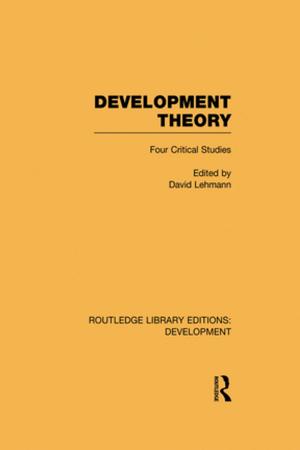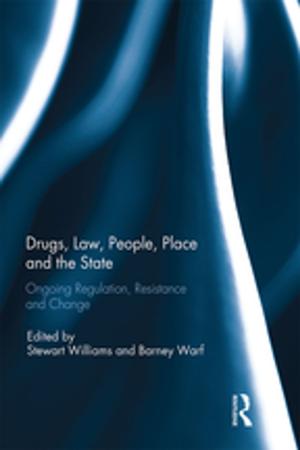Australia's Cash Economy: A Troubling Issue for Policymakers
A Troubling Issue for Policymakers
Nonfiction, Social & Cultural Studies, Social Science| Author: | Christopher Bajada | ISBN: | 9781351739900 |
| Publisher: | Taylor and Francis | Publication: | November 22, 2017 |
| Imprint: | Routledge | Language: | English |
| Author: | Christopher Bajada |
| ISBN: | 9781351739900 |
| Publisher: | Taylor and Francis |
| Publication: | November 22, 2017 |
| Imprint: | Routledge |
| Language: | English |
This title was first published in 2002: Very little is known on the Australian underground economy. Only speculation has offered estimates of its size - around ten per cent of GDP. This book provides comprehensive research on the topic for Australia, including the suggestion that the underground economy exhibits strong fluctuations. The text has three central objectives: to understand why a suspiciously large amount of currency remains outstanding and cannot be explained by legitimate transactions alone. Secondly, to examine factors that motivate individuals to participate in the underground economy and the consequences they may have on the business cycle, on the quality of the National Accounts and on taxation revenue. And finally, to examine whether households or businesses are contributing most to the underground economy and whether the new tax system, introduced in July 2000, will have any impact on underground activities in Australia.
This title was first published in 2002: Very little is known on the Australian underground economy. Only speculation has offered estimates of its size - around ten per cent of GDP. This book provides comprehensive research on the topic for Australia, including the suggestion that the underground economy exhibits strong fluctuations. The text has three central objectives: to understand why a suspiciously large amount of currency remains outstanding and cannot be explained by legitimate transactions alone. Secondly, to examine factors that motivate individuals to participate in the underground economy and the consequences they may have on the business cycle, on the quality of the National Accounts and on taxation revenue. And finally, to examine whether households or businesses are contributing most to the underground economy and whether the new tax system, introduced in July 2000, will have any impact on underground activities in Australia.















